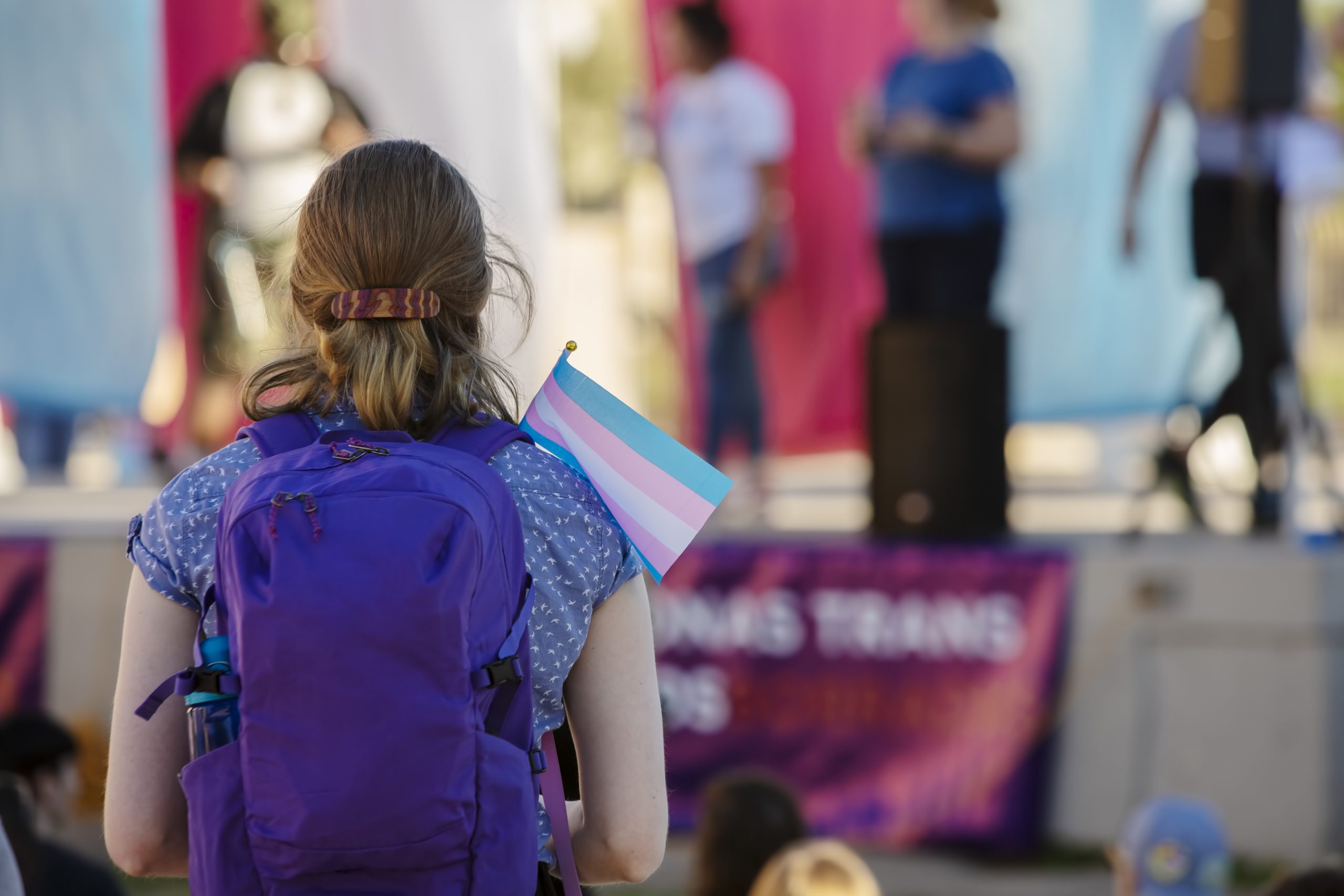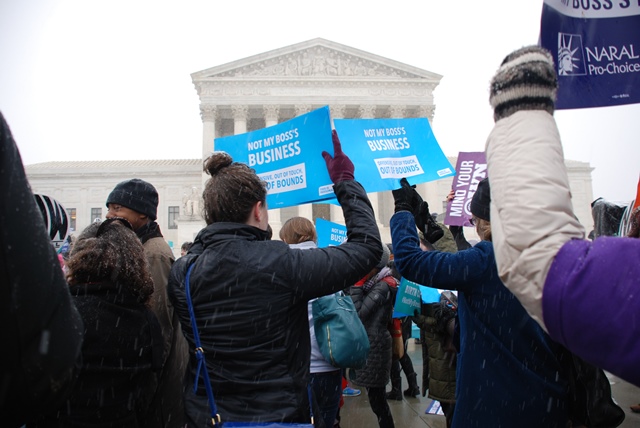All gifts, up to $10,000, TRIPLE-matched until June 30!
Why Arizona’s Anti-Trans Sports Ban Harms All Women and Girls

On October 13, 2023, the National Women’s Law Center (NWLC), Hogan Lovells US LLP, joined by 33 organizations committed to gender justice, led an amicus brief in Doe v. Horne, to support two girls, Jane Doe and Megan Roe, who challenged Arizona’s anti-trans sports ban. (These 11- and 15-year-old girls use aliases to protect their privacy.)
Our amicus brief asks the U.S. Court of Appeals for the Ninth Circuit to uphold a positive district court decision and, also the Ninth Circuit’s own existing precedent, which found that both Title IX (which prohibits sex discrimination in schools) and the Equal Protection Clause of the Fourteenth Amendment to the US Constitution protect the rights of trans girls and women to access educational programming free from discrimination.
The Case
Jane and Megan have benefitted from gender-affirming health care—meaning that they are not being forced to go through an incorrect puberty. These girls want to play on their volleyball, soccer, basketball, and cross-country teams to have fun, learn new skills, and play with their friends, just like any student who chooses to play sports.
In fall 2022, Arizona enacted SB 1165, a discriminatory law that specifically bans trans girls and women, from kindergarten through college, from playing school sports alongside their peers on the correct team that aligns with their affirmed gender. Jane, Megan, and their families have been forced to challenge this discriminatory law in court just to have a chance to play.
When Arizona adopted SB 1165, extremist lawmakers used baseless fearmongering to push this bill through. They falsely claimed trans girls “threaten” girls’ sports, while ignoring the threats girls and women actually face in sports, whether they are transgender or cisgender. Those include:
- 1,300,000 fewer team spots are open to high school girls compared to high school boys, right now. Yes, you read that right, 1.3 million!
- Racist disparities result in even fewer school sports opportunities for girls of color than are available for both boys of color and white girls
- Second-class funding and resources for girls and women’s teams
- Did you know Division I schools only spend $1 on women athletes for every $2 spent on men athletes?
- Sex harassment and assault targeting student athletes
- You may have read about high-profile legal cases like the one involving USA Gymnastics, but did you know 93% of student athlete survivors never report their experience?
These are real threats to girls involved in school sports—obviously, trans youth are responsible for zero of these problems, and are in fact harmed by them, just like cisgender youth. If Arizona is genuinely interested in addressing and preventing sex discrimination in women’s school sports, these threats are what require attention. The gender justice movement has correctly maintained its focus on these key issues since Title IX was enacted over 50 years ago—the resounding silence from far-right lawmakers only emphasizes the grossness of their fixation on attacking trans girls and women as scapegoats for political gain.
Thankfully, the district court made a positive initial decision, concluding Arizona’s anti-trans sports ban is probably illegal because of how it punishes trans girls and women based on their transgender status and for failing to conform to narrow, misogynistic sex stereotypes. This is in line with decades of federal court decisions, including the Ninth Circuit’s ruling in Hecox v. Little (see NWLC’s brief in that case here.) With the district court’s order in place, Jane and Megan are allowed to play school sports while their case is pending.
Jane, Megan, and their lawyers at the National Center for Lesbian Rights are asking the Ninth Circuit to keep this correct decision in place and to follow the appeals court’s own previous decisions finding Title IX and the Equal Protection Clause do give LGBTQI+ students, including trans, nonbinary, and intersex students, strong rights against these discriminatory sports bans.
Our Brief
Our amicus brief explains the deep connections between anti-trans sports bans, body policing (which disproportionately hurts Black and brown women), and the enforcement of sex stereotypes that hurt all girls and women—women who are transgender, women who are intersex (meaning they have natural, physical variations in sex-linked traits), and women who are cisgender (meaning their gender fully aligns with their assigned sex at birth.) Opponents of LGBTQI+ equality have attempted to score political points by demonizing trans, nonbinary, and intersex student athletes—especially trans girls—but we know from over a decade of data (collected 2008–2019) these attacks are nothing but lies. Initial research on states that implemented trans-inclusive policies, beginning 15 years ago, shows more girls overall are playing school sports in places where trans girls are supported and included. On the other hand, where states enacted hostile policies to bully trans and nonbinary students, we see fewer girls total playing school sports.
Enforcing anti-trans sports bans often relies upon dangerous practices of “sex testing,” which create new risks of sex harassment against student athletes. They range from collecting sensitive medical documents to needless, traumatizing genital examinations. Athletics bans especially target Black and brown women (who face increased body policing and gender scrutiny based on racialized stereotypes of femininity) and intersex women and girls. Although research is lacking about intersex students’ experiences of harassment and discrimination in school, in a 2020 survey of over 1,000 intersex youth, 45% reported gender-based discrimination by school staff.
Gender justice in sports cannot succeed without trans women and girls. We need to ensure that all girls are protected in education.
NWLC advocates for the rights of trans girls, cis girls, and all LGBTQI+ students because we know when the government enforces sex stereotypes, everybody loses. We will keep fighting for core civil rights protections in our schools that support all students learning and growing in safety. NWLC and our 33 supporting signatory organizations are asking the Ninth Circuit to follow its existing precedent, and recent precedent from the Supreme Court, to protect Jane, Megan, and all LGBTQI+ students from discrimination.




